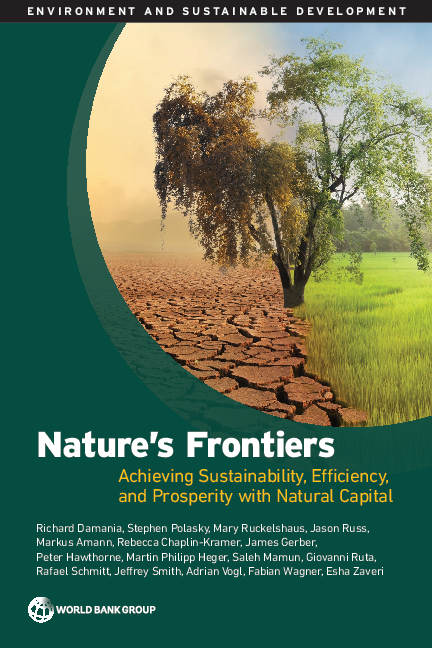 Read this article in French
Read this article in French- Share this article
- Subscribe to our newsletter
Nature’s Frontiers
Global challenges such as climate change, economic productivity, food and water security, and health could be overcome if countries use their natural resources more efficiently. And this is possible without sacrificing the environment or human prosperity. These are the findings of a new report titled Nature’s Frontiers: Achieving Sustainability, Efficiency, and Prosperity with Natural Capital. The paper was published in June 2023 by the World Bank, the Natural Capital Project and the International Institute for Applied Systems Analysis (IIASA).
The report identifies how and where countries can use natural resources more efficiently so that they can prosper without damaging the planet – or going beyond their natural efficiency frontiers. It concludes that major efficiency gaps exist in nearly every country in how they use their natural resources. Closing these gaps can address many of the world’s pressing economic and environmental problems. On average, countries can almost double their performance in terms of either economic returns or environmental outcomes by making improvements in one of these areas – without losing out in the other.
Countries are facing competing needs and stretched budgets. Tackling inefficiencies is therefore one of the more cost-effective and economically attractive ways to achieve global sustainability goals. Better allocation and management of land, water and other natural resources could lead to annual income increases in agriculture, grazing and forestry of approximately USD 329 billion worldwide. It could also ensure enough food production to feed the world until 2050 – without net loss of forests and natural habitats.
According to the report, avoiding deforestation could sequester an additional 85.6 billion metric tons of carbon dioxide – or 1.7 years of global emissions – without affecting economic growth. In addition, spending the same amount on air pollution prevention – but in a more efficient way – could help save 366,000 more lives every year. Many of these opportunities are in low- and middle-income countries, which also stand to benefit the most.
There is no one-size-fits-all solution, given the stark differences in the challenges faced by different countries. Instead, the report identifies what changes are needed and where these changes need to occur in a country. It provides indicators to evaluate trade-offs and identifies the most appropriate policy mix for the country. The result is a detailed roadmap that can assist countries in selecting the most feasible and affordable approach to meet their environmental and development needs.
(World Bank/ile)
Read more and download the report on the World Bank website





Add a comment
Be the First to Comment